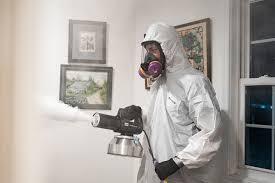Trauma scene cleanup is a highly specialized and sensitive service that goes beyond standard cleaning. These services are crucial after incidents involving violent crimes, accidents, unattended deaths, or other traumatic events. Unlike routine cleaning, trauma scene cleanup requires specialized training, professional equipment, and strict adherence to health and safety regulations to ensure proper decontamination and prevent potential health hazards.
Understanding Trauma Scene Cleanup
A trauma scene is any location where an individual has suffered a traumatic injury or death, including homicides, suicides, accidents, or natural deaths. Bloodborne pathogens, bodily fluids, and other biohazardous materials often contaminate these scenes, posing serious health risks if not handled correctly. Trauma scene cleanup professionals are trained to safely remove all hazardous materials while restoring the property to a clean and safe condition.
Why Trauma Scene Cleanup is Necessary
Attempting to clean a trauma scene without proper knowledge or equipment can be extremely dangerous. Blood and other bodily fluids can carry pathogens like HIV, hepatitis B and C, and other bacteria or viruses. Improper handling can expose family members, friends, or untrained cleaners to life-threatening infections. Additionally, trauma scene residues may cause lasting damage to property if not treated with professional-grade disinfectants and decontamination methods.
Professional trauma scene cleanup ensures that:
-
The property is thoroughly sanitized and disinfected.
-
Biohazardous materials are safely removed and disposed of following local, state, and federal regulations.
-
Psychological stress is minimized for family members or property owners dealing with the aftermath of a traumatic event.
The Process of Trauma Scene Cleanup
Trauma scene cleanup follows a structured process to ensure safety, efficiency, and compliance with biohazard regulations. Here’s an overview of the standard procedure:
1. Assessment and Planning
Before any cleaning begins, professionals assess the scene to determine the extent of contamination. They identify areas affected by blood, bodily fluids, or other hazardous materials and develop a detailed cleanup plan tailored to the specific needs of the site.
2. Safety Precautions
Safety is the top priority in trauma scene cleanup. Technicians wear personal protective equipment (PPE) including gloves, masks, face shields, and biohazard suits. They also use barriers and containment methods to prevent cross-contamination to other areas of the property.
3. Removal of Contaminants
Trained cleaners carefully remove all contaminated materials such as carpets, furniture, linens, or other porous items that cannot be fully sanitized. Non-porous surfaces are treated with hospital-grade disinfectants that effectively eliminate bacteria, viruses, and other pathogens.
4. Decontamination
After removing physical contaminants, the team thoroughly cleans and decontaminates all affected surfaces. This includes floors, walls, furniture, and equipment. Advanced techniques, such as fogging or ozone treatments, may be used to neutralize odors and ensure a deep, safe clean.
5. Disposal of Biohazard Waste
Biohazardous waste is disposed of according to strict legal and environmental guidelines. Trauma scene cleanup companies coordinate with licensed medical waste disposal services to ensure all materials are safely handled and discarded.
6. Final Inspection and Restoration
Once the cleaning and decontamination are complete, the team inspects the property to confirm that it meets safety standards. Some companies also offer restoration services to repair or replace damaged materials, leaving the property in a habitable and secure condition.
Challenges in Trauma Scene Cleanup
Trauma scene cleanup is not just about removing visible messes. Professionals face numerous challenges, including:
-
Emotional Sensitivity: Working at a scene where a tragedy occurred requires compassion and discretion to support affected families.
-
Complex Biohazards: Bloodborne pathogens, chemical residues, and decomposition fluids require specialized knowledge and handling techniques.
-
Legal Compliance: Cleanup must follow local, state, and federal regulations regarding biohazard handling and disposal to avoid legal liabilities.
-
Odor Removal: Strong odors caused by decomposition or bodily fluids require advanced deodorization methods to fully restore the space.
Choosing a Professional Trauma Scene Cleanup Company
Hiring a trained and certified trauma scene cleanup company is essential. When selecting a provider, consider the following:
-
Certification and Training: Ensure the team is certified in bloodborne pathogen handling and trauma scene cleanup protocols.
-
Experience and Reputation: Look for companies with a proven track record in handling trauma scenes and positive client reviews.
-
Equipment and Techniques: Professional-grade tools, PPE, and decontamination methods are critical for effective cleaning.
-
Insurance and Compliance: Verify that the company is insured and compliant with all biohazard regulations to protect both workers and property owners.
Supporting Families During Trauma Cleanup
Trauma scene cleanup is more than a technical service; it also involves emotional support. Families dealing with sudden death or violent incidents often experience stress, grief, and trauma. A compassionate cleanup team can ease this burden by handling the physical and hazardous aspects of the cleanup, allowing families to focus on emotional healing.
Conclusion
Trauma scene cleanup is a vital service that ensures safety, health, and emotional well-being after a tragic event. It requires specialized training, equipment, and strict adherence to safety and legal standards. Attempting to clean a trauma scene without professional help can be dangerous and ineffective. By hiring certified trauma scene cleanup professionals, property owners can restore their spaces safely, efficiently, and respectfully, while receiving the support needed during an emotionally difficult time.
For families and property owners facing the aftermath of a traumatic event, professional trauma scene cleanup offers peace of mind, proper sanitation, and a path toward recovery.



